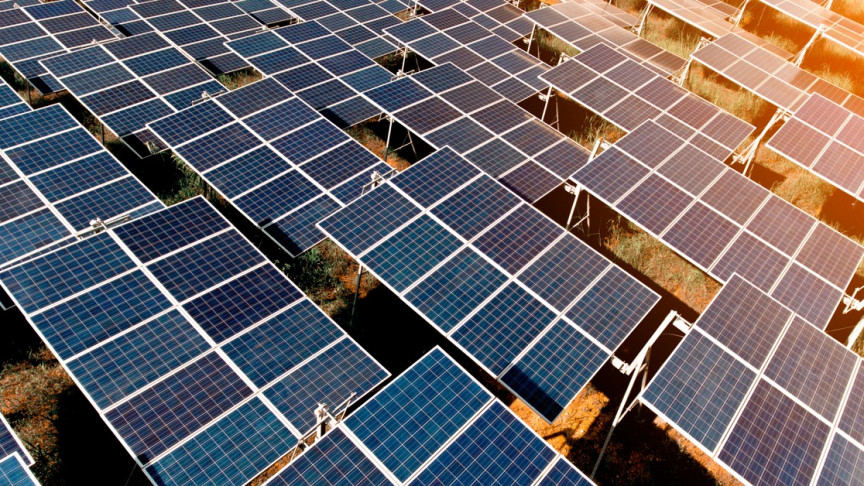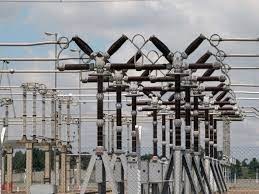An indigenous solar energy company, LPV Technologies, has called for a radical shift in government policy with a call for a zero-import approach to solar panels, arguing that only through local manufacturing can Nigeria truly secure its renewable energy future.
Speaking at a press briefing at its newly inaugurated facility in Lagos at the weekend, its Executive Director Yinka Adelodun laid out a bold vision for the future of solar power in the country—a vision that hinges on local production, quality assurance, and supportive government policies.
Adelodun urged the Federal Government to institute a framework that favours local production by removing import duties on all components used in domestic manufacturing.
“If you’re importing panels duty-free while we pay duty on everything except the cells, the playing field isn’t level. We expect a zero-import policy on solar panels so that Nigerians can take pride in our own manufacturing capabilities.
“In a rapidly evolving industry, being flexible and ready to incorporate new technologies is key to staying ahead,” Adelodun said.
He said while the company’s current capacity is about 100 megawatts, this is only a fraction of Nigeria’s potential.
“Nigeria needs gigawatts of power every year. Even if we double our capacity, we will still have ample demand locally. And make no mistake—there is also substantial interest from other West African countries like Togo and Cameroon,” he said.
Adelodun identified challenges such as the sourcing of raw materials. While cells must currently be imported, all other components—glass, aluminium frames, and junction boxes—are either already sourced locally or can be manufactured domestically.
“We are working with local companies, like the aluminium facility in Abuja, to meet our needs. The more we localize production, the more we can alleviate forex issues and reduce production costs,” he added.
Adelodun emphasized that by controlling the supply chain, the company would be able to ensure that every panel meets rigorous quality standards. “You can call us and say, ‘I want five megawatts of solar panels,’ and we will produce it on demand,” he said, adding that the facility is a production of collaboration with European original equipment manufacturer (OEM).
“What you saw today is a product of collaboration with a European OEM, ensuring our panels are of grid A European standard. We have about six different gates of quality assurance before the final product is finished. This is a level of assurance that imported panels often cannot offer, with between 20per cent and 25per cent of them failing to meet the mark,” he added.
Speaking on the facility, he said: “We have always believed that seeing is believing. It’s one thing for you to say you have a facility like this; it’s another thing to actually see it and confirm it exists. The journey for this facility started almost two years ago with the mission of deploying solar infrastructure at scale. Today, while many are putting solar panels on their roofs as a band-aid, the real solution lies in harnessing solar and gas to power our economy sustainably.”
He explained that the facility was created to resolve significant issues faced by the industry, such as developers ordering panels months in advance only to have their shipments delayed by customs or storage issues.
During the facility tour, Head of Operations, Emmanuel Agboola, reinforced the quality message by highlighting the exceptional durability of the solar panels.
“Our panels are engineered to last for more than 25 years,” Agboola noted, explaining that the company’s heavy investment in advanced technology and automation allows for a level of quality that can rival—and even exceed—that of imported products.
Also, the Head of Business Development and Marketing, Juwon Solarin, shared insights into the company’s distribution strategy.
“We already have multiple sales outlets in place, and our plans include expanding our distribution network significantly.
“We are calling on more distributors to join us in pushing these high-quality, locally manufactured panels throughout Nigeria. It’s about building a strong ecosystem that can compete on a global level,” he said.
The company’s new facility, which is entirely operated by Nigerian experts, underscores the potential of homegrown talent in the renewable energy sector.
Adelodun noted with pride that every person on the production line is an engineer, demonstrating a commitment to not only manufacturing excellence but also capacity building and job creation.
“We want to replace the importation of panels with Nigerian ingenuity. This is a critical undertaking for our country’s future,” he said.
The company’s production line is designed with flexibility in mind. Currently using PERC technology, the facility can produce panels ranging from 350-watt to 680-watt configurations and is already configured to adopt emerging technologies like TopCon.
Adelodun’s address, coupled with Agboola’s and Solarin’s insights, paints a picture of a company determined to lead Nigeria’s renewable energy transition through indigenous production.
By demanding a zero-import policy and advocating for government support, the company not only aims to create a robust supply chain for high-quality solar panels but also to set a benchmark for the entire renewable energy sector in Nigeria.
In a country where the national grid is under strain and decentralized micro-grids are becoming increasingly important, this call for zero import is positioned as a critical step towards a sustainable, self-reliant energy future.
As Nigeria stands on the brink of a renewable revolution, the company’s bold vision and concrete steps toward local manufacturing could well pave the way for a new era in energy security and economic growth.



